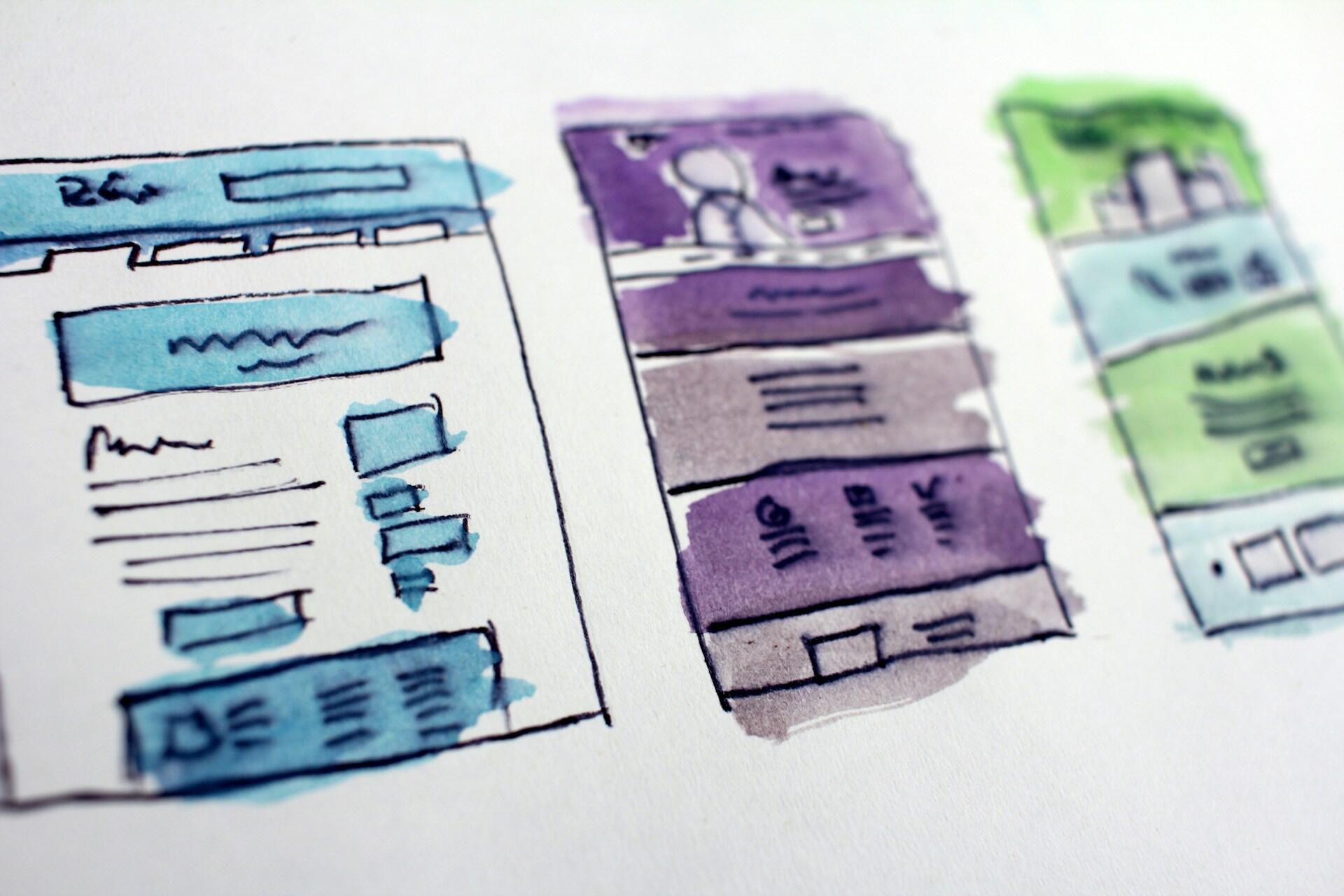Writing a CV can be tricky when you don’t have any work experience to include. But you're not out of luck just yet. You have relevant skills to highlight, and you'll detail your educational background, too. In this article, you'll discover tips for writing a CV with no experience, and see CV examples for students in the UK. As a preview, here's how creating such a document works.
CV Examples for Students With No Work Experience: What to Include
- In the header: list your personal data (name, contact information, and social media handles).
- Follow with a short personal statement, no more than one paragraph long.
- Next: work experience. If none, enter volunteering and/or tutoring experience, or internships.
- Education: list your highest education level and extracurricular activities.
- Skills: soft skills (leadership skills, critical thinking, etc) and hard skills: languages, coding, e.g.
- References: someone you know in an official capacity; a teacher, tutor, or volunteer supervisor.

Why Do You Need a CV?
In the not-so-distant past, people used to go job-hunting. They would go from shop to shop, dropping off their CVs and asking for applications to fill out. Or they would find companies to apply to through newspaper adverts.

Those few minutes of face-to-face engagement gave people the chance to present themselves, and employers the chance to size them up.
Just the act of dressing for work and making the effort to appear in person was often enough to give an applicant an advantage.
The Digital Age has wiped out the personal advantage. Applying for work online is impersonal, and these days, Artificial Intelligence (AI) is likely to scan your CV before any human lays an eye on it.
AI looks for suitable keywords that suggest an applicant might be a candidate worthy of an interview.
This is why you need a CV, and why your document must meet current job application standards. It serves as your face-to-face introduction and puts all your relevant skills and knowledge up for scrutiny.
So, your CV must not only be in proper format, but it must also contain all the information relevant to the position you're applying for. Let's learn how to do that.
Key Components of a Student CV
In this step-by-step guide for how to write a CV for a job with no experience, we examine all the parts that make up a top CV.
| Section | Explanation |
|---|---|
| Personal Statement | This acts as an introduction and a chance to explain a little about yourself, as well as prove your communication skills |
| Skills | While other people may choose to put work experience top, people with no experience should focus on skills |
| Education | Education also takes on more importance with a lack of work experience, it is a way to show that you are hard-working |
| Hobbies and Interests | This can give a further idea of the kind of person you are and what you like to do |
| Employment History (if Relevant) | If you have done some work, even work experience, it is worth including at some point in your CV |
| References | Make sure that you provide a reference, such as a teacher or somebody in a position of trust who can vouch for you |
Your Personal Information
You must give prospective employers a way to contact you. You should also invite them to examine at least some of your social media, preferably a professional site like LinkedIn. In short, think of the information in your CV's header as the 'introduce yourself and shake hands' part of a job interview. This is what the top of your document should contain.
Full name
Title (undergraduate student, graduate student, [subject you studied] student)
Phone number
Email address
Website or social media
Physical address (optional)
Your Personal Statement
Your personal statement should be a summary of your career goals, skills, and what you hope to achieve. It must also reflect your personality. Highlight your enthusiasm, motivation, and willingness to learn.
Your personal statement must not be longer than one paragraph long. Give yourself around 75 words, but no more than 100 words, to describe yourself and your goals.
Educational Credentials
Even if you had work experience, you'd still have to list your relevant education. Since you lack work experience, all the focus is on your education. Include your school's name, degree or qualifications earned, dates of study, and any relevant coursework or projects. Highlight any achievements or honours you received.
Note that the keyword in our opening sentence is 'relevant'. If you majored in design but design isn't relevant to the position, emphasise your skills and achievements instead.
Relevant skills
Identify and highlight skills applicable to your target job or industry. To do this effectively, you'll have two skillsets to draw from:
Soft skills
- communication skills
- teamwork and team-building
- problem-solving
- critical thinking
- leadership skills
Technical skills
- proficiency in specific software
- programming languages you know
- language skills
- accounting skills
- writing skills
Important: provide examples of using these skills in your education or other activities in your cover letter (see below).
Extracurricular Activities and Volunteering
Extracurricular activities include memberships in academic clubs (debate club, maths club and so on). If you've no such activities to list, you may cite organisations or societies you were involved in during your education. Focus on leadership roles, teamwork experiences, or projects demonstrating your skills and abilities.
If you have volunteered or completed any internships, include them in this section.
Highlight tasks you performed, skills you gained, and your most significant accomplishments.
Projects and Coursework
If you've taken any courses and/or completed projects relevant to the job you're applying for, list them separately. Mention specific projects or assignments that showcase your skills and knowledge in those areas.
Hobbies and Interests
These should be a footnote, and only included if your hobbies/interests are relevant to the position you're applying for. For instance, if you're applying for a game designer job, mentioning your gaming skills is perfect. Conversely, if you're after a position that demands a lot of creativity, list your artistic skills - painting, drawing, or writing music, for example.
Tips for Writing an Effective CV Without Work Experience
As noted above, your CV is your personal introduction to future employers. As such, your document should reveal your personal qualities as much as your professional ones. We're talking about your sense of initiative, your critical thinking abilities, and your sense of presentation.
Tailor Your CV to the Job
Analyse the job description and identify the skills and qualities the employer seeks. Customise your CV by aligning your qualifications and experiences with those requirements.
You can find the skills and qualities employers look for in the job posting.
Those requirements are under the advert's 'Who we're looking for' section.
Format and layout
Keep your CV well-organised, easy to read, and visually pleasing. Use clear headings, bullet points, and a professional font. Keep the document concise! One page is enough of a summary to give your future boss an idea of who you are and what you bring to the job.
Professional fonts: Arial, Verdana, or Calibri.
'Creative' and 'traditional' job fonts: Garamond, Georgia, or Cambria.
Bulleted lists: help to condense information; easy to scan.
Template design: from austere to vibrant, depending on the position you're applying for.
Active Voice and Quantifiable Achievements
What's the difference between these two sentences?
The film was directed by Ben Jacklin.
Ben Jacklin directed the film.
They contain the same essential information and even the same words. However, the first one makes the film the subject and the director the object. You NEVER want to be the object of your accomplishments! Always identify yourself as the subject; write using the active voice.
#1: Always use action verbs: using strong verbs proves your action-oriented style.
#2: Proofread and edit: proofread it to correct any spelling or grammatical errors. Make sure the information is accurate and up to date

Common CV Mistakes to Avoid
Never forget that your CV is your introduction to prospective employers. You wouldn't show up to an interview with your hair a mess and broccoli between your teeth, would you? In that same vein, you should never let your introductory document hint at any weakness on your part. Avoid these mistakes to ensure your shot at an interview.

Failing to Proofread
By far, the biggest block to getting hired is poor spelling and grammar.
Robert Walters, Global Talent Solutions
Any professional document with grammar and spelling errors will automatically be discredited, if not rejected outright. Attention to detail is a characteristic of professionalism. If you don't demonstrate such in your introduction, prospective employers have no reason to believe you will do so in your work.
Most spellcheckers won't flag an incorrect word spelt correctly.
Example: 'dairy' versus 'diary' - "I maintained my club's dairy during my senior year."
Solution: ask a trusted person (teacher or group leader) to review your document.
Duties versus Achievements
You know the difference: duties are things you HAVE to do, achievements are things you SET OUT to do (and succeeded at). Employers don't want duty-bound job candidates; they want people who show initiative, who are goal-oriented. So, emphasise what you achieved, not what you were told to do.
Dishonesty
Throughout your entire academic career, you were told that plagiarism wouldn't be tolerated. Employers won't stand for dishonesty, either. Make sure that anything you list on your CV is quantifiable - you can prove it.

Using Clichés
A cliché is a phrase that's been used so often it has become trite, meaningless. Avoid promoting yourself using clichés like 'team player', 'can-do attitude', and 'task-oriented'. Instead, use action verbs and original phrases to describe yourself and your accomplishments.
Meaningless, unimaginative phrases that virtually guarantee application rejection.
These are signs that you are an independent thinker with a creative mind.
Pro tip: refer to the job posting's 'Who we're looking for' section. Mirror the adjectives they use on your CV to describe yourself.
Formatting
The last four major errors all relate to formatting your document:
- It's too long: employers will not take the time to read through more than a page or two.
- Overly stylish: other than distinguishing between fonts (see above), your document should be free of decorations and style.
- It doesn't match the job requirements: failing to tailor your CV to the job posting's requirements is the surest way to see your application rejected.
- Date gaps: make sure to present a straight line of activity from your CV's oldest date to its newest.
CV Examples For Students With No Work Experience
Remember, even without work experience, you can still highlight your skills, education, and other relevant experiences. Study these documents as examples.
University Student CV Example

Sixth Form Student CV Example

Additional Resources and Tools To Write a CV For a Job With no Experience
This guide aims to deliver all the information you need for how to write a CV for a job with no experience. Of course, it's all fine and well to tell you how to do it, but you also need the tools to get the job done. For that, these resources are invaluable.

CV Templates
If you're uncertain about how to format your document, you can search for CV templates or samples online. Remember to choose the template that best meets the job's nature, not your personality!
Resume (CV) Builders
These are applications that build and format your CV. You must input all the information - your personal and educational data, work history (if any), skills, references, and personal statement. These builders put everything in the proper order and offer a variety of document types to save them in.
Always choose PDF (portable document format) unless the job posting specifies a different format (.doc, .docx, Pages, etc.)
Professional CV Writing Services
For job seekers looking for that personal touch, writing services are the way to go. Ideally, you'll visit such an office, where a writer will interview you to discover what to include in your document.
Online writing services are far more in number, but you have no guarantee that a person will write your CV. The service may well let AI compose your document, something you could do by yourself (but you shouldn't!)
The downside of hiring such a service is that you may not be able to edit your CV. Remember that you must tailor it to each job posting, so having editing capabilities is vitally important. When you negotiate with such a service, insist on having that ability (or agree to paying for updates).

How to Write a CV For a Job With no Experience: Frequently Asked Questions
People always have questions the first time they do anything. There's no shame in asking, of course. But it's much better to find the answers you're looking for without having to ask. Here, as answer the two most frequently asked questions.
How Can I Make My CV Stand Out as a Student With No Work Experience?
A well-organised and visually appealing CV will leave a positive impression. Follow these formatting tips to create an eye-catching document:
- Use clear and concise headings for each section (e.g., "Education," "Skills," "Volunteer Experience," etc.).
- Use bullet points to list your achievements, responsibilities, and skills. This makes it easier to read and scan.
- Choose a professional font that is professional and easy to read, such as Arial, Calibri, or Times New Roman.
- Maintain consistency in formatting, spacing, and indentation throughout the CV.
- Keep the document clean and uncluttered. Avoid excessive use of fancy fonts, colours, or graphics unless you're applying for a creative field where visual elements are expected.
Should I include a cover letter with my CV?
Besides following the do's and don'ts of writing a personal statement, you must 'cover' your CV with a letter.

This letter expands on the points you make in your CV's personal statement. It gives you more room to tout your personal and professional qualities.
Your cover letter also gives you space to reveal your interest in the company. It's where you tie in what you learnt from researching the company with the skills
and qualities you offer. For instance, you might write, "I noted from your company profile that you champion environmental initiatives, a cause I am also passionate about." And then, you would detail ways that you demonstrate that commitment.
If you still have trouble creating a personal statement for CV with no experience, look at this list of 5 questions you must ask when writing your personal statement.
Summarise with AI:




















